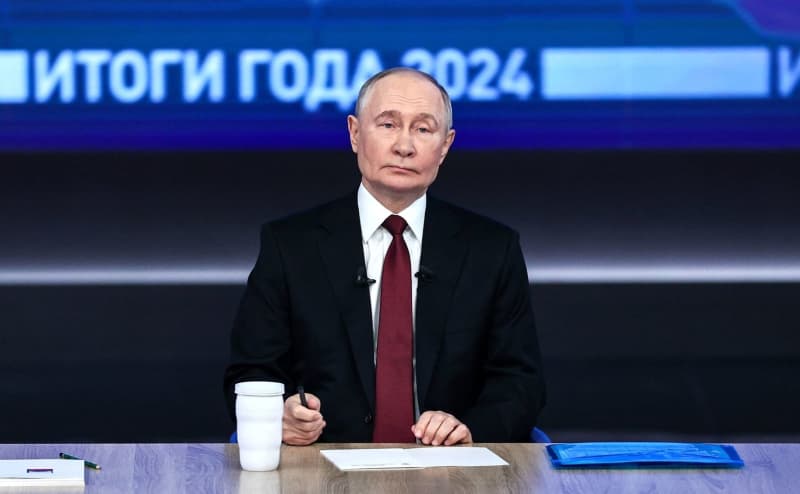In a recent televised event, President Vladimir Putin addressed the ongoing conflict involving Ukrainian troops who have occupied parts of Russia’s southern Kursk region. Following the seizure of numerous villages by Ukrainian forces since August, Putin expressed a strong resolve to reclaim and rebuild these territories. During his annual question-and-answer session, he made it clear that efforts would be undertaken to expel Ukrainian soldiers from the area, although he refrained from providing a specific timeline for when residents could return to their homes or when war damages would be repaired. His comments reflect a continued commitment to the territorial integrity of Russia amid ongoing hostilities.
The situation remains tense, as the Ukrainian government claims its military operations aim to secure advantageous negotiation positions to potentially resolve the conflict. With the focus on reclaiming lost territories, Ukrainian forces have taken strategic control of areas within the Kursk region, which borders northern Ukraine. This development has significant implications, not only for the ongoing war efforts but also for broader strategic negotiations that may follow. The Ukrainian leadership is likely assessing the benefits of occupation as a leverage point in any future discussions with Russia.
Putin’s commitment to restoring the occupied regions highlights his administration’s plans for post-conflict recovery, reiterating that all damage caused by the war would be meticulously assessed. He emphasized that infrastructure, including roads, would be rehabilitated and that full restoration efforts would be initiated once Ukrainian forces have been expelled. This narrative is crucial for maintaining public morale, particularly among those displaced by the fighting. Thousands in the affected region have already lost their homes and are reliant on emergency accommodation, making the promise of rebuilding a significant issue for local populations.
Despite his assurances, Putin’s reluctance to provide a specific timeline for recovery indicates a complex challenge ahead. The uncertainty surrounding the conflict’s duration and the prevailing military situation may affect both the residents’ hope for a swift resolution and the government’s ability to deliver on its promises. The absence of a clear plan could lead to frustration among those affected by the war and may feed into broader sentiments of anxiety regarding their future.
As the conflict continues to evolve, managing the humanitarian crisis resulting from the war will be paramount. Many individuals in the Kursk region are facing dire circumstances due to displacement, and the need for urgent assistance is evident. Russian authorities are being called upon to address both immediate needs and long-term solutions to support those impacted by the violence. How the Kremlin chooses to navigate these challenges will likely influence public perception and trust in Putin’s administration.
In conclusion, Putin’s recent statements about the Kursk region reflect a dual approach of asserting military objectives while also addressing the pressing humanitarian issues stemming from the conflict. As Ukrainian forces maintain control of significant areas, the Kremlin’s strategy will require careful balancing of wartime operations with the commitment to post-war recovery and support for displaced individuals. The path forward remains uncertain, both in terms of military outcomes and the restoration of normalcy for the affected populations.

